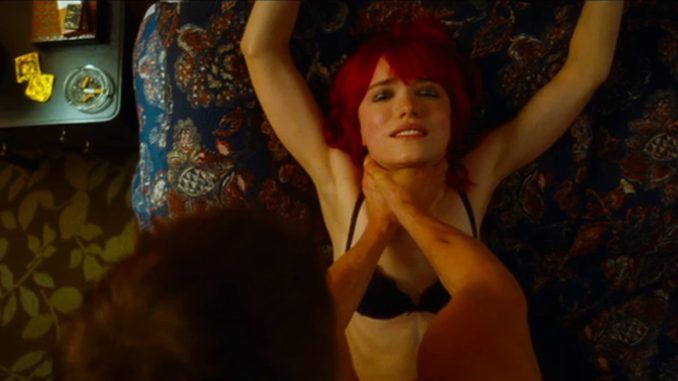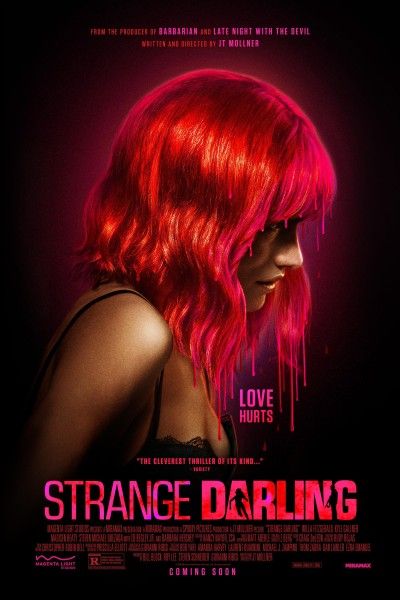
Rating: B+
Dir: JT Mollner
Star: Willa Fitzgerald, Kyle Gallner, Ed Begley Jr, Barbara Hershey
I was undecided whether this should be a B or a B+, until I read an amazingly terrible review on RogerEbert.com. It told me little about the movie, but a great deal about the reviewer. All I’ll say is, her thumbnail looks exactly like the sort of person who would unironically use phrases like, “a scenario that reinforces misogynist beliefs about women.” Hey, I wouldn’t say the film was that good… Though you should read something into the fact I’m using up review space on being snarky – it reduces the amount of time I need to tiptoe round spoilers. Not that they necessarily make much difference. I figured out the mid-movie twist before it happened, and no big.
A lot of reviews compare this to a Tarantino film, and in some ways, I can see it. Most obviously, the fractured time-line, unfolding in six chapters plus an epilogue; just not in that order. The heavy needle-drops also feel somewhat Quentin-esque. On the other hand, Mollner shows restraint in dialogue, especially in a largely wordless opening, which is not like QT at all. We get a voice-over, explaining we’re about to see the last days in a notorious serial killer’s spree, then cut to a woman (Fitzgerald) being chased by a man (Gallner). Names? They’re vastly overrated. The opening credits call them “The Lady” and “The Demon”, and that’s all we get. We then go back to show the events leading up to that point.
 Well, some of them, and that’s the other difference to Pulp Fiction. There, the chronologically challenged narrative was less in the service of the story, than pure artistic conceit. Here, it’s key, setting up a scenario in line with certain genre and societal expectations. Then, you discover the truth, and it’s not what you expect, with the rest of the film deliberately pushing back. For example, there’s a scene involving a pair of cops which… [checks notes] reinforces misogynistic beliefs about women, apparently. Alternatively, I suggest the entire film completely upends the genuinely misogynistic belief that women are only capable of being victims. Well, unless you’re the sort of person who apparently believes Red One offers “yet another signpost on the road to fascism.”
Well, some of them, and that’s the other difference to Pulp Fiction. There, the chronologically challenged narrative was less in the service of the story, than pure artistic conceit. Here, it’s key, setting up a scenario in line with certain genre and societal expectations. Then, you discover the truth, and it’s not what you expect, with the rest of the film deliberately pushing back. For example, there’s a scene involving a pair of cops which… [checks notes] reinforces misogynistic beliefs about women, apparently. Alternatively, I suggest the entire film completely upends the genuinely misogynistic belief that women are only capable of being victims. Well, unless you’re the sort of person who apparently believes Red One offers “yet another signpost on the road to fascism.”
To think, some people say film criticism is dead. [With any luck, by the end of this review, it will be…] If that was a joke, it’s quite funny. However, people like Ms. Augenie Avery-Ware don’t usually consider fascism funny. It’s enough to make me want to take my naturalization exam and become a US citizen, purely so I can vote Republican and piss her off. Meanwhile, back in the film, the proud announcement at the start, about it being shot on 35mm is fully justified. I was surprised to find the cinematographer was Giovanni Ribisi, who on the evidence here, may have been wasting his talents as an actor. Admittedly, I’m not certain how much this would stand up to repeated viewings: knowing where it’s going would perhaps rob this of significant impact. As a one-shot though, it’s an impressively savage ride, with no quarter given.
